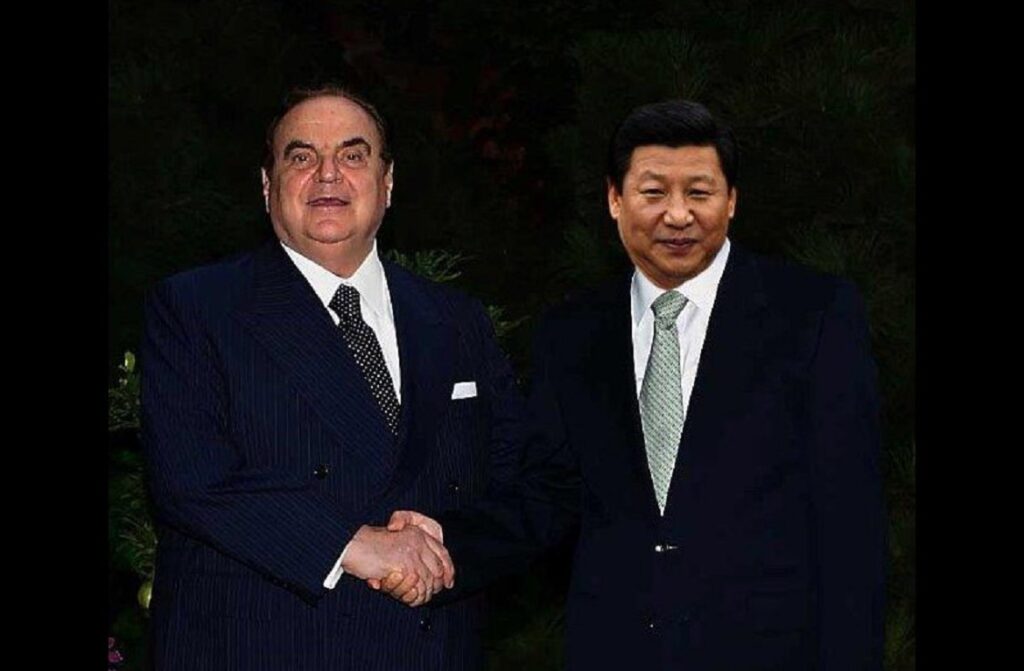World Geostrategic Insights interview with Prof. Giancarlo Elia Valori on the significance of China’s reform and opening-up both for its social, economic development and modernization and for achieving a shared global prosperity.
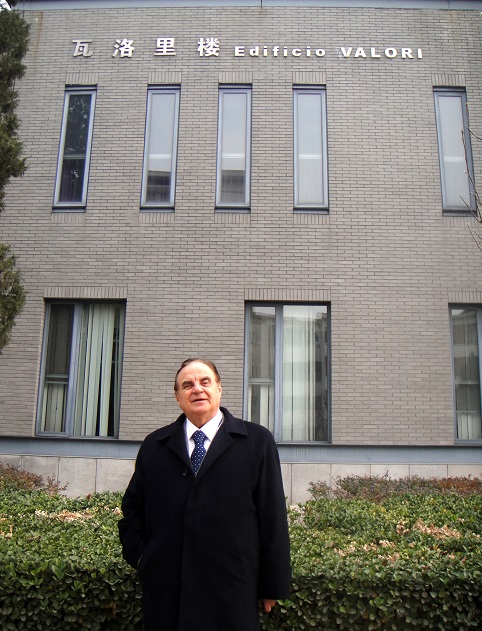
Giancarlo Elia Valori is one of the most highly regarded Italian managers in the world, a prestigious academic who has friendships and solid collaborations with Heads of State, politicians, entrepreneurs, managers and academics at the highest international levels, playing a leading role in fostering dialogue and cooperation between countries. Giancarlo Elia Valori is currently President of the International World Group and Global Strategic Business, consultant to the Chinese HNA Group and honorary chairman of Huawei Italy. He is a professor at renowned universities, such as Yeshiva University in New York, Hebrew University in Jerusalem, and Peking University in China
Dec. 18, 2023 marks the 45th anniversary of China’s reform and opening up, have they been an inevitable path?
I wouldn’t use the word inevitable, it could in no way be done without reforms, instead the right word is ineluctable. Moreover, it is certainly not a recent question. The establishment of the People’s Republic in China on October 1, 1949, created the basic social conditions for the modernization of the country, while as early as 1978, with Deng Xiaoping’s so-called “Four Modernizations,” the first reforms in agriculture, science and technology, industry, and national defense were officially initiated.
The current reforms are releasing and developing social productive forces to accomplish great advances in national construction, ensure new vitality to the system and the material conditions for a rapid development. The era of socialism with Chinese characteristics provides a more comprehensive institutional guarantee, a more solid material basis, and a more active spiritual force toward national modernization.
The basic principles of Marxism are adapted to Chinese characteristics, taking into account China’s specific reality, culture and tradition. The push for modernization, the deepening of its theoretical understanding, the continued strategic maturation and enrichment of practice, have been forwarded within the framework of a series of ideas, new views and forward-looking conclusions, which enrich and develop the modernizing theories. It is a renewed analysis of the theories that have fostered the country’s historical achievements and changes for years.
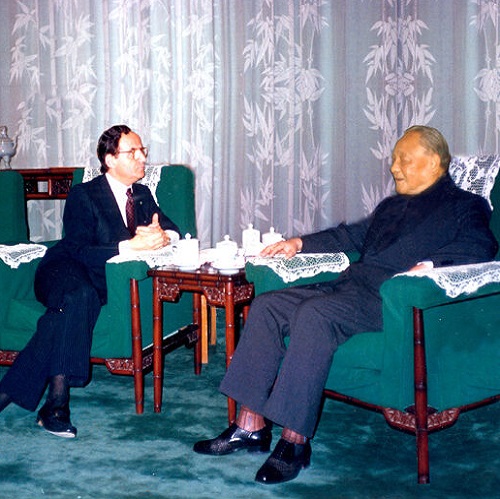
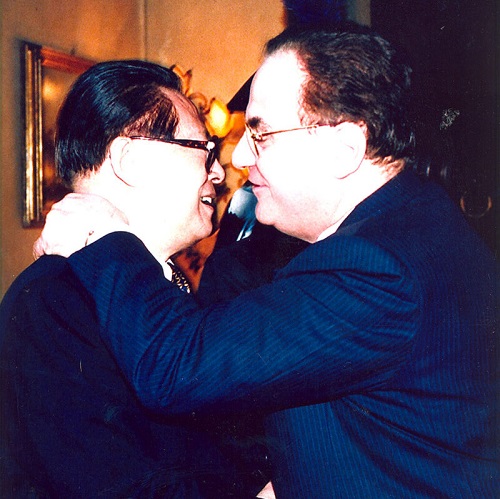
You have visited China many times, what is your impression of the extent of changes brought about by reform and opening up? What significance have they had for China?
Yes, I have visited the People’s Republic of China several times, and with my own eyes I have gradually verified the great and impressive change in economic, industrial, financial and social structures. Indeed, the significance of the reforms has been to recover from the “two hundred lost years”, resulting in the “backwardness” that, in 1949, the founders of the People’s Republic faced after liberation.
A parallel process has been created over time, between industrialization, computerization, urbanization and agricultural modernization, that is in toto reforms. The goal is to achieve the maximum reform: that is, modernization. It started practically and substantially 45 years ago with the thinking of Deng Xiaoping, and through progressive phases, is aiming to build a modern, stable, defense-strong country by 2035. The completion of reforms will then be fully realized before the middle of the 21st century.
Regarding the goal of great modernization, contained in the reforms, contrary to what some propaganda trumpets, I would like to state that there is no single model of modernization in the world — much less one to be imposed by force and violence, as has often been the case — nor is there a standard universal model with instruction manuals.
China’s reforms and openings to the world are essentially the cure for a country with a huge population, taking into account the lessons of practice and reformist and modernizing experiences in other countries of the world: both positive and negative, such as the Great Leap Forward (1958-1961) itself. China’s population is more than 1.412 billion citizens and it will soon exceed the sum of the populations of current developed countries.The difficulty and complexity faced are unprecedented, so the development path and promotion method must have their own characteristics.
What are the reasons behind the success of reform and opening up? It is believed that the success of reform and opening up demonstrates China’s institutional advantages. In what specific aspects do you think this is reflected?
The reasons behind the success are precisely the reforms and opening-up: a great accomplishment unprecedented in history. They are the fundamental achievement of all the Chinese people after inexpressible hardships paid dearly. It is the right way to realize the great rejuvenation of the Chinese nation. Only by adhering to these principles can the People’s Republic of China develop.
Reform and openness are an important tool for the Chinese people to make great strides to catch up with the times. It is necessary to adhere to the basic principle of deepening reform and opening up, support and improve China’s basic economic system and build a high-level market; improve the distribution system; further stimulate the enthusiasm and creativity of all aspects of society; promote high-profile opening up to the rest of the world; improve the resources linkage between domestic and international markets; create new advantages and opportunities in international competition; and provide a strong impetus for the advancement and realization of the desired and ongoing modernizations.
At present, major changes in the world-never seen in a century-are accelerating, and the planet has entered a new period of turmoil and change. The country’s reform, development and stability are facing many profound contradictions. With confidence, the best can be done to overcome all difficulties and challenges on the way forward.
China has always emphasized the need for expanding reform and openness and has continuously fostered the building of a community with a shared future for humanity. China’s development cannot be separated from the world, and the world’s prosperity also needs China. How do you see the opportunities presented by China’s opening to the world? How do you assess China’s role and contribution to the world over the past 45 years of reform and opening up?
It is not possible to summarize a comprehensive analysis of China’s role and contribution in the world over these 45 years in an interview response. But I would like to emphasize, here, how the relatively recent BRICS initiative, conceived by the People’s Republic of China, is of absolute importance globally. Indeed, it includes meanings ranging from the end of colonialism, still real to the detriment of developing countries – through “colonialism in a new package” – to the possibility of achieving shared global prosperity. The economic unification, desired by the BRICS countries, does not guarantee, but offers the possibility for the emergence of a strong bloc with valuable authority. The commitment of the BRICS countries is to further improve the lives of each of their citizens. This may happen slowly, but the organization is doing an extraordinary job in this regard.
Chinese politicians are people who come from thousands of years of history. They are the heirs of Emperor Qin Shi Huangdi, if not of the Yellow Emperor Xuanyuan Huangdi.They are realistic and look at the concrete and the interests of their own country, in order to have harmony among the people of the land, and no one can overpower the others.
Let us also not forget the privileged relationship of the People’s Republic of China with developing countries, a subject that greatly annoys the United States of America and the former colonizing countries of the past and, de facto, of the present.
In providing assistance to foreign states, the People’s Republic of China always respects the sovereignty of recipient countries, places no constraints whatsoever, and pursues win-win outcomes. Chinese assistance has brought real benefits to the developing countries involved and has been praised and appreciated by them.
Nowadays, I would like to remark, the most significant difference is between the Chinese international perspective and the Western liberal perspective. Socialism itself has ideological, historical, and traditional integration content and is dedicated to the pursuit of cooperation and liberation of all peoples, according to the five principles of the Bandung Conference (April 18-24, 1955), on which the People’s Republic of China has always consistently based its foreign policy:
1 – Mutual respect for sovereignty and territorial integrity;
2 – Mutual non-aggression;
3 – Mutual non-interference in each other’s internal affairs;
4 – Equality and mutual benefit;
5 – Peaceful coexistence.
Regarding the point that the development of the People’s Republic of China cannot be separated from the world and also the prosperity of the world needs China, it should be said that, instead, the liberal perspective pursues globalization on the surface, but in reality it is driven by the Western liberal-capitalist countries in the service of their own interests and corporations. At present, Western developed countries, at the tail end of the United States, are appearing as an anti-globalization force, because globalization is increasingly deviating from their desires for domination.
In conclusion, the countries of the world must first solve the problems of development, poverty and reduce the episodes of friction. Non-traditional global security issues such as food security, resource scarcity, demographic outburst, environmental pollution, prevention and control of infectious diseases, pandemics, and transnational crimes can only be achieved with everyone’s agreement.
As of January 1, 2024, the population of the BRICS will be 45.6 percent of that of the planet, their land area 31.5 percent of the landmass. In 2020, the BRICS countries surpassed the G7 countries’ share of the world’s total gross domestic product (GDP) in terms of purchasing power parity (PPP). In 2024, the difference will increase further, the BRICS with a total of 37 percent of world GDP compared to the 30 percent held by the G7 countries. We also need to reflect on that.
Giancarlo Elia Valori – World-renowned manager and academic with a leading role in fostering dialogue and cooperation between countries. He is President of the International World Group, and Global Strategic Business, Advisor to the Chinese HNA Group, honorary Chairman of Huawei Italy, and of the Italian Delegation of the Abertis Foundation. He also holds the position of vice president of the Weizmann Institute in Paris, and he is a member of Ayan-Holding, the Advisory Board School of Business Administration College of Management in Israel, and of the Advisory Committee of the historical-technical Journal “Conservation Science in Cultural Heritage.”


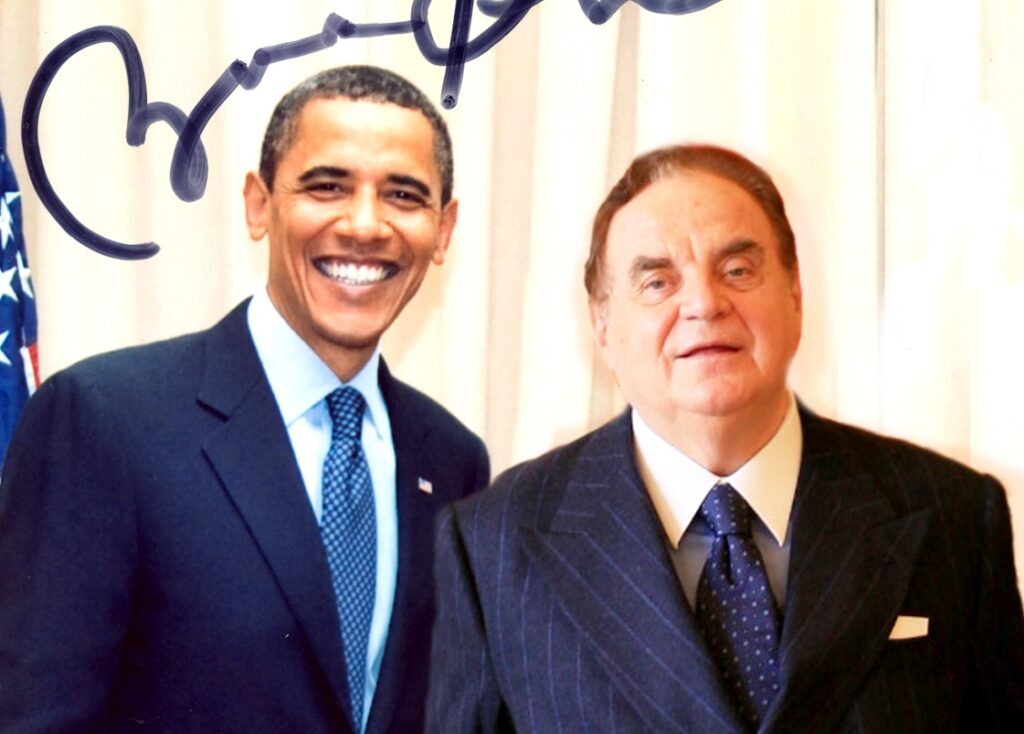
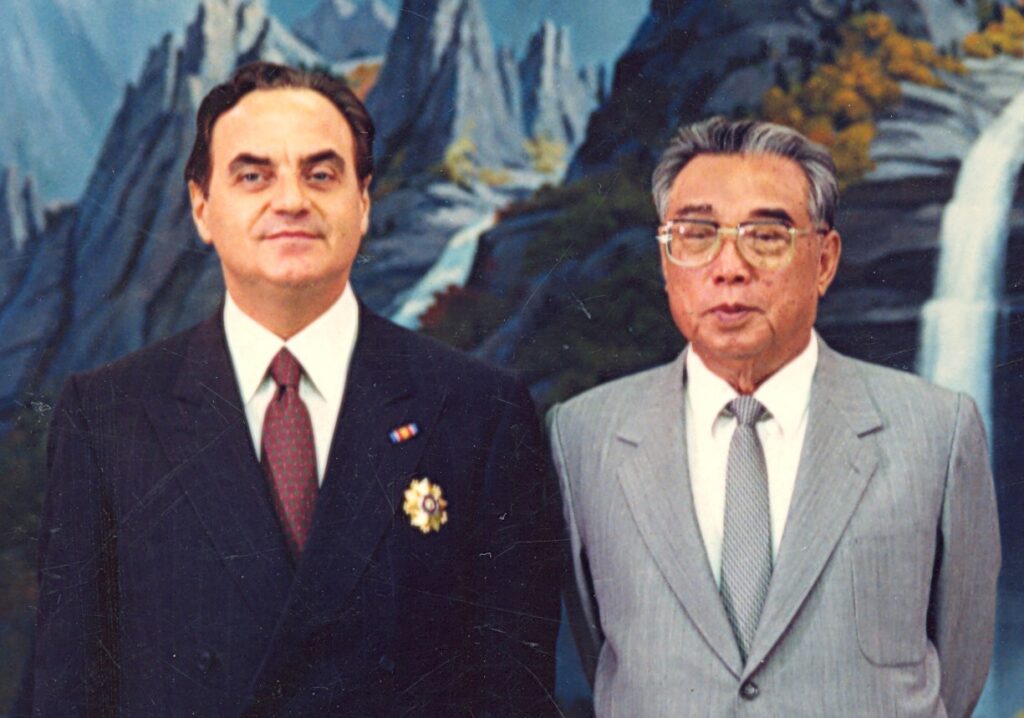
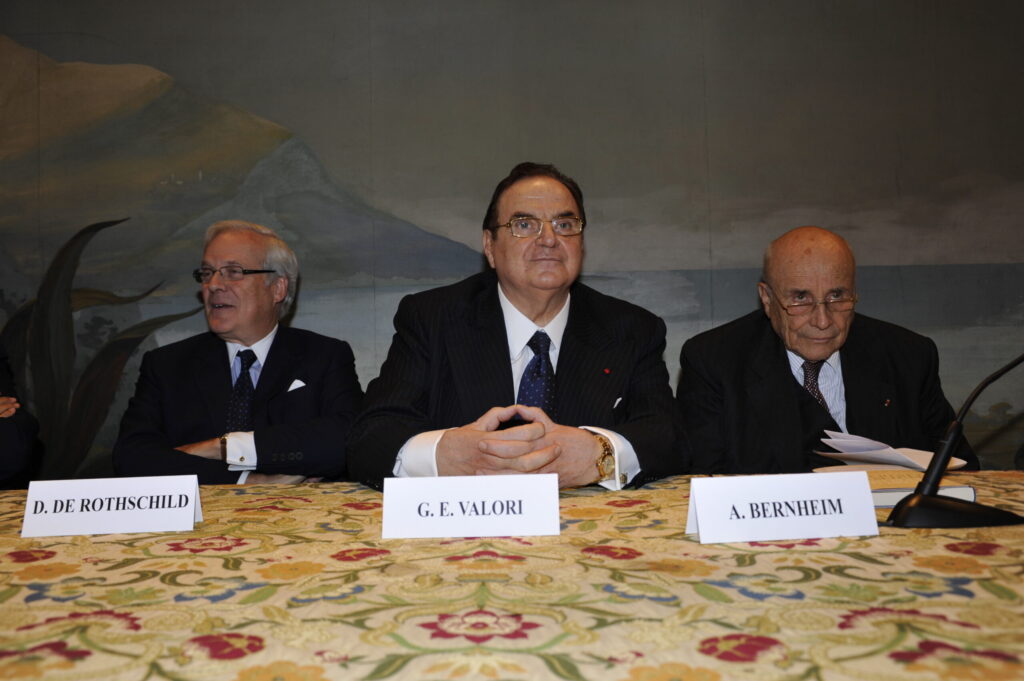
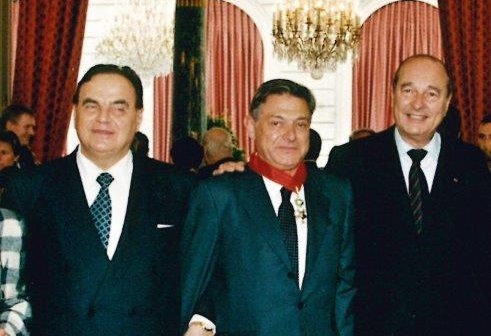
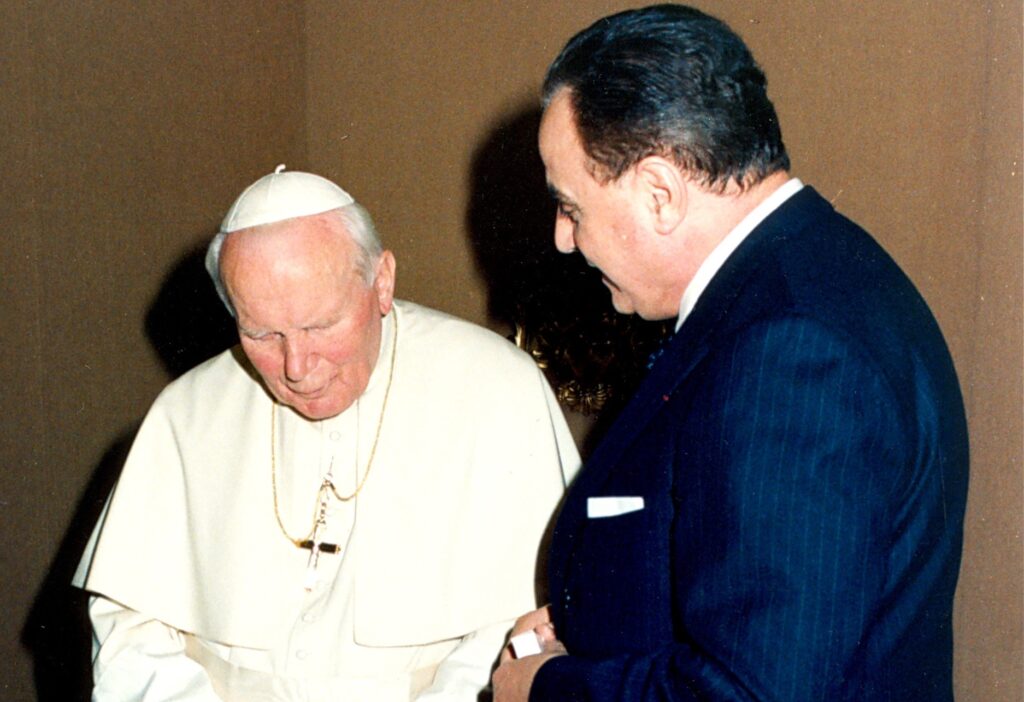
Giancarlo Elia Valori holds professorships in renowned universities, such as the Yeshiva University in New York, Hebrew University in Jerusalem and the Peking University in China. He has received numerous top honors, including that of Cavaliere di Gran Croce and Cavaliere del Lavoro al Merito of the Italian Republic, Cavaliere della Legion d’onore of the French Republic, Goodwill Ambassador of UNESCO, and Honorable of the Académie des Sciences de l’Institut de France.
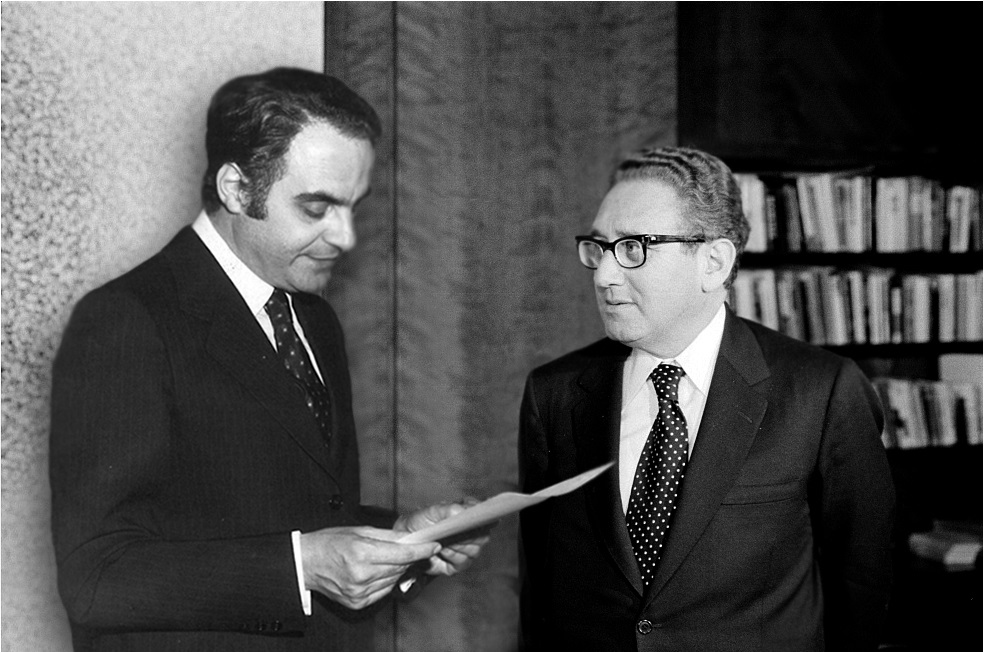

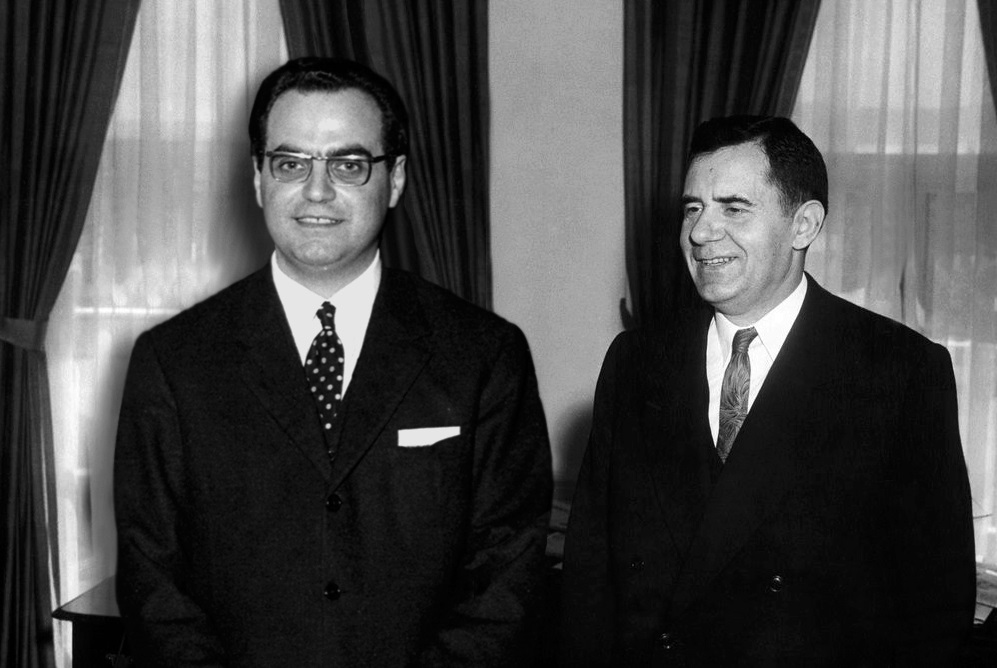

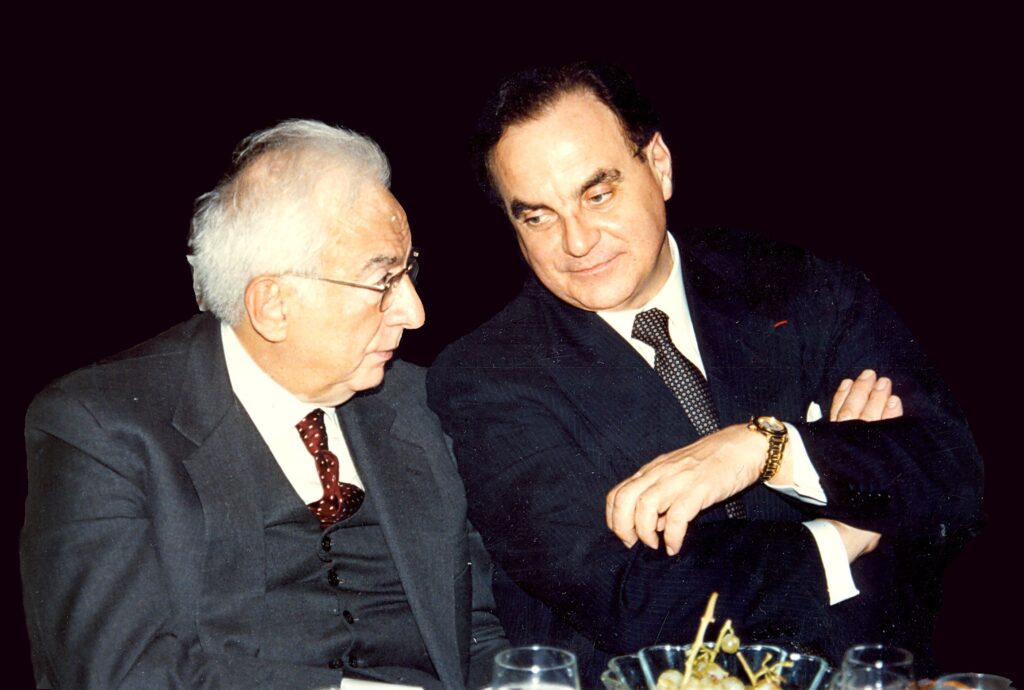
Giancarlo Elia Valori is the author of numerous books, among them: Geopolitics of Space (2006), Anti Semitism, Holocaust, Denial (2007), Mediterranean between Peace and Terrorism (2008), The Future is Already Here (2009), The Way of China (2010), Geopolitics of Water (2012), Geopolitics of Food (2013), “Free Until When? Artificial Intelligence, Fake News and the Future of Democracy” (2020), “Artificial Intelligence between Myth and Reality. Engine of development or imminent danger” (2021), Cyberspace and artificial intelligence between West and East (2023).







